
You take the “lap” in laptop literally
Just because it’s called a laptop doesn’t mean you should set it on your lap. In fact, putting it there too often could shorten your laptop’s life. “The processor is the brain of the computer, and it gets really, really hot, and it needs to vent this heat somewhere,” explains Aaron Schoeffler, director of operations for Computer Repair Doctor. “Often times, the fan is located on the bottom of the laptop, where there’s a little ventilation.” But if that vent is covered by your pants or a blanket, your laptop could overheat, or dust might start to settle inside. Canned air can sometimes move the dust around enough to bring the laptop back to tip-top shape, but it could also end up with internal damage that requires professional help.
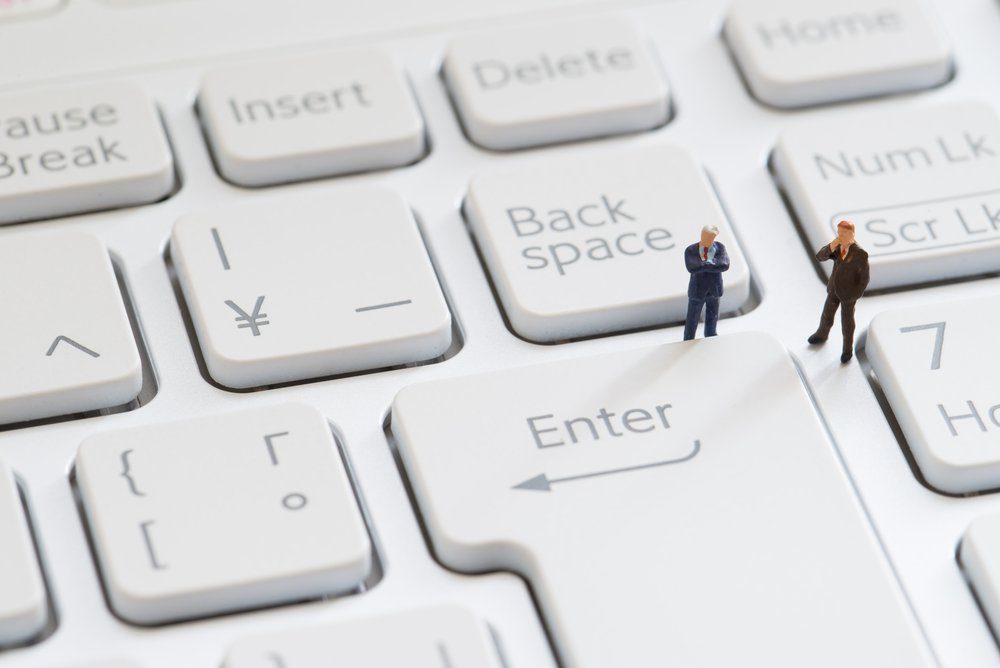
You never turn it off
It’s easy to just shut your laptop lid at the end of the night so that it boots up in just a couple of seconds the next morning, but leaving it on all the time means you aren’t getting the updates your computer needs. Systems need “patches” to fix vulnerabilities and improve the software. “Most of those patches don’t take effect unless you restart your computer,” says Trey Eiland, managing partner at computer support service 5Q Partners. He recommends shutting it down at least once a week, though more is even better.
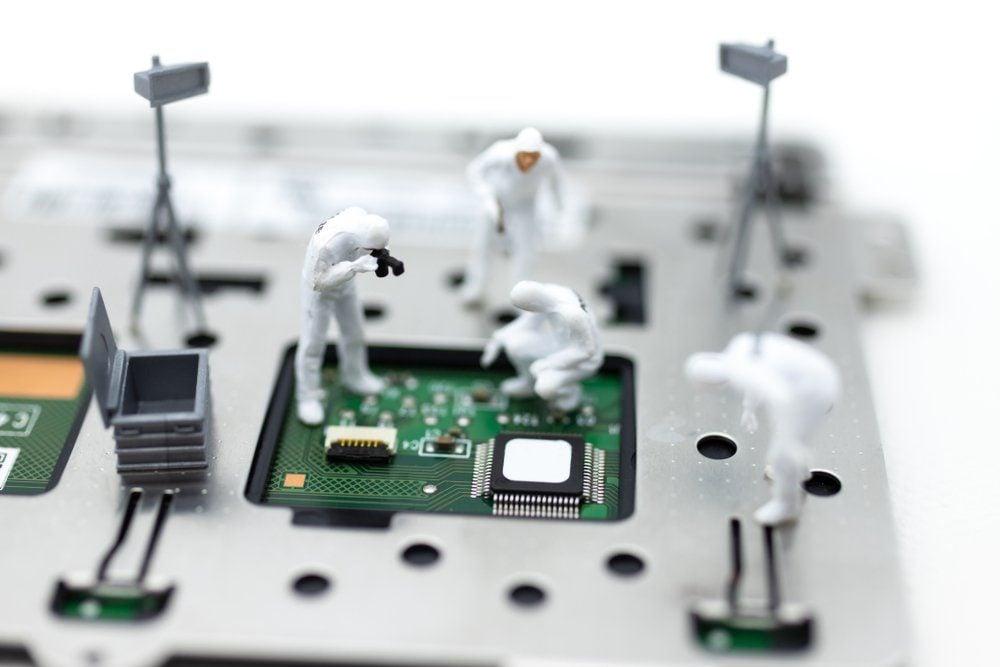
You don’t have a surge protector
There’s a reason you’ve been told to unplug electronics during a thunderstorm. “If you’re plugged in and lightning hits around your house and you get a surge, that laptop is going to be fried,” says Eiland. Relying on unplugging it isn’t the safest choice—a power surge could take you off guard, your battery might need juice before the storm passes, or you might not be home to unplug it. Eiland recommends investing in a surge protector if you don’t already have one.
Make sure you avoid these common power bar mistakes.
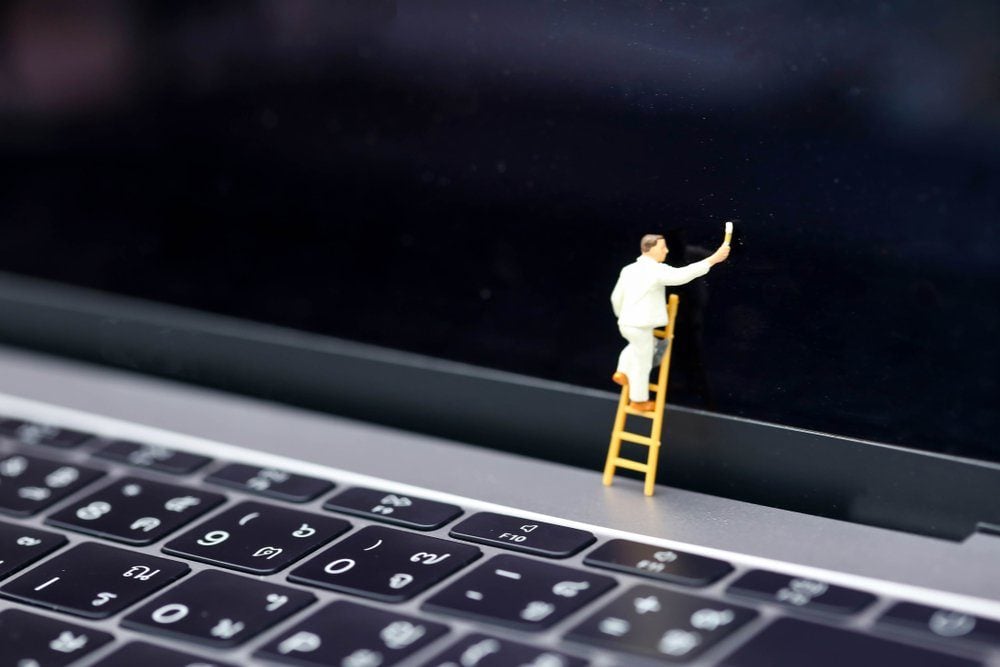
You pick your laptop up by the screen
It’s easy to grab an open laptop by the top, where the screen is, but that can mean bad news for your computer. There are metal screws attached to your laptop’s plastic case, and yanking on those screws can loosen them. “Naturally, metal is slightly stronger…and moving it around causes stress on the plastic,” says Schoeffler. “If it bends too much, it will eventually snap or get loose to the point where it starts to deteriorate. Be kind to your laptop by scooping it up from the bottom instead.
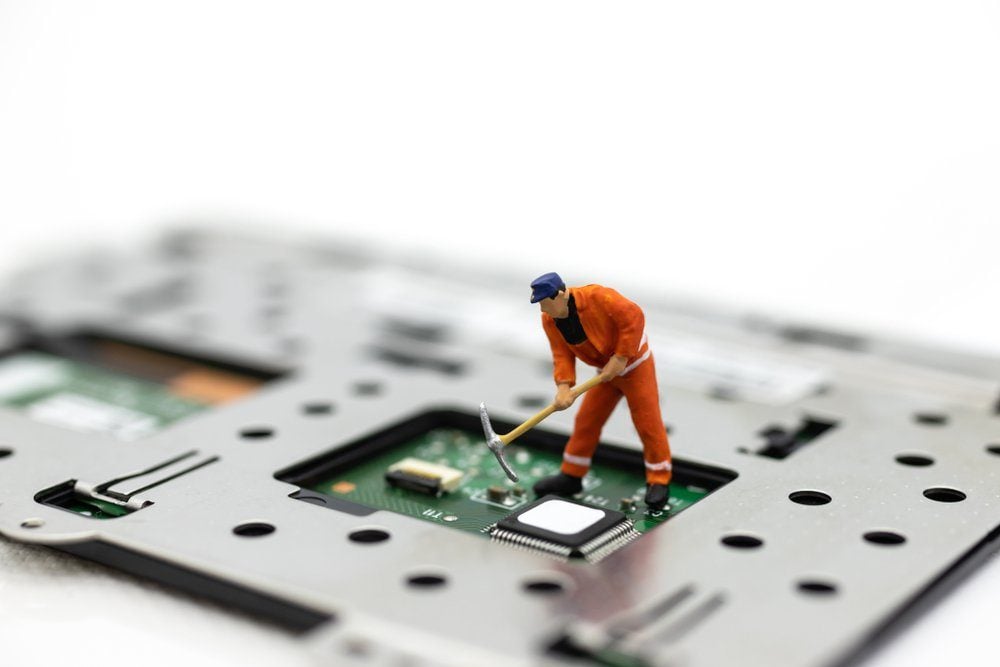
You pop your laptop loose into a bag
When you have to carry your laptop around, make sure you tuck it in the laptop slot if your bag has one, or slip it into a padded case before putting it in your bag, suggests Eiland. That way, if you drop your bag or plop it on the floor, there will be something softening the blow for the computer inside.
Find out exactly what those F1-F12 keys do.
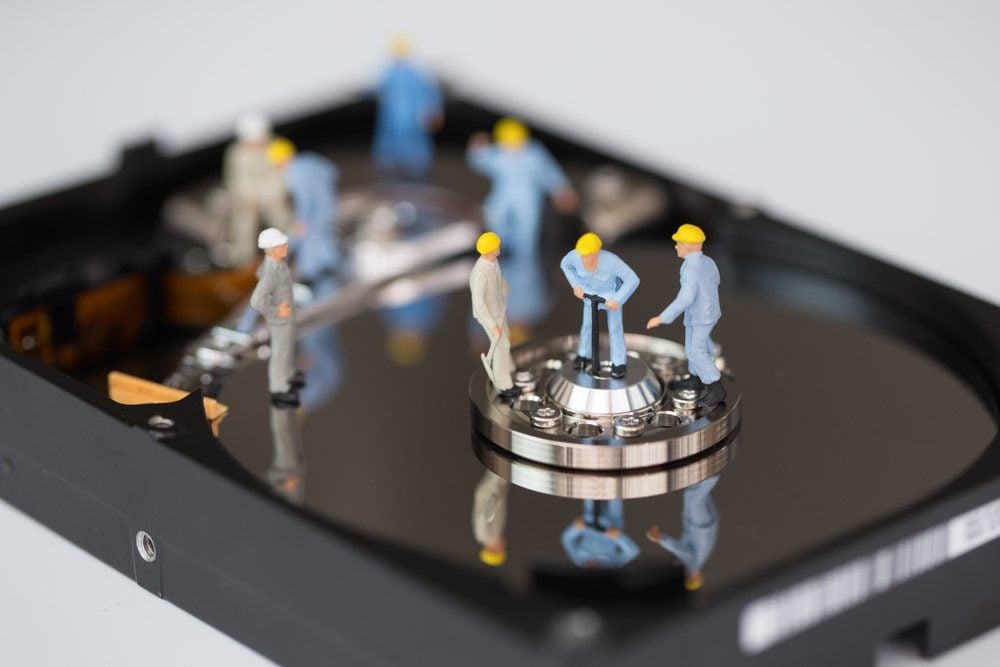
You stuck with the hard drive it came with
Unless you have a new model, your laptop probably has what’s called a hard disk drive (HDD)—it’s what causes that whirring noise when you boot it up. Unfortunately, that HDD can’t spin fast enough to keep up with demands after a while, which is why tech experts recommend upgrading to a solid state drive (SSD). “It’s a pretty big difference,” says Schoeffler, who explains that the upgrade can shave as much as two minutes off the booting-up time. Ask your local computer pros if they can install one for you—it’s a worthwhile investment.
You’ll want to change your settings immediately if you use any of these weak passwords.
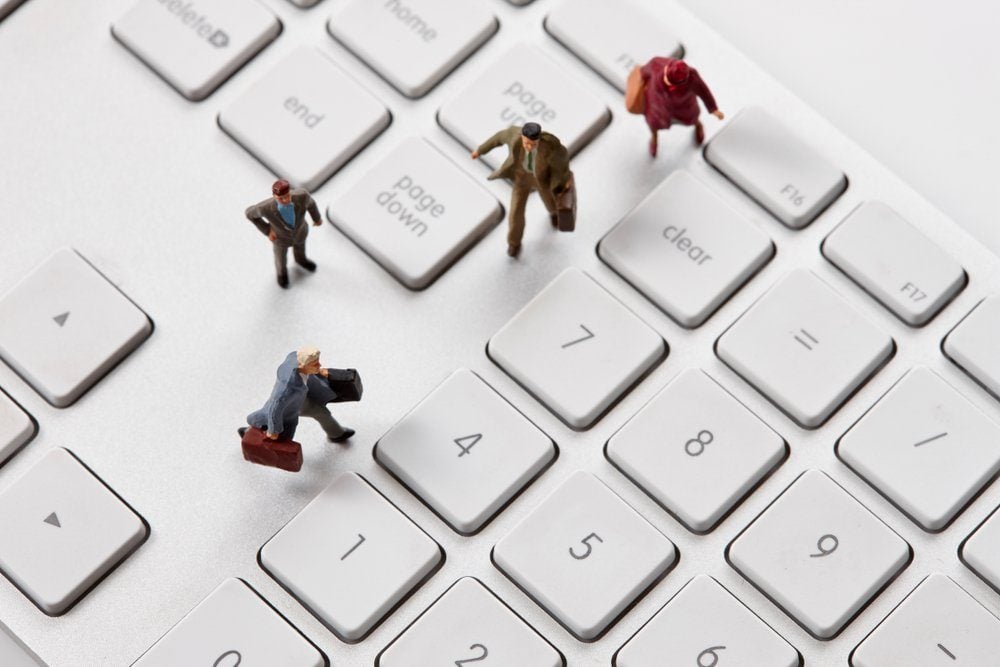
Too many programs launch when you boot your computer up
If your Windows laptop has been running way too slowly, try hitting Ctrl + Shift + Esc to bring up Task Manager, suggests Schoeffler. Go to the Start-up tab to find a list of all the apps that open when you boot your laptop up and how much impact they have on the startup time. Right-click on any programs that you don’t use every day and click “Disable”. “It doesn’t mean it won’t run, it just means you have to manually start it,” says Schoeffler. Next time you restart, you should notice that things are ready to go faster than ever.
Discover more computer tips you’ll wish you’d known sooner.
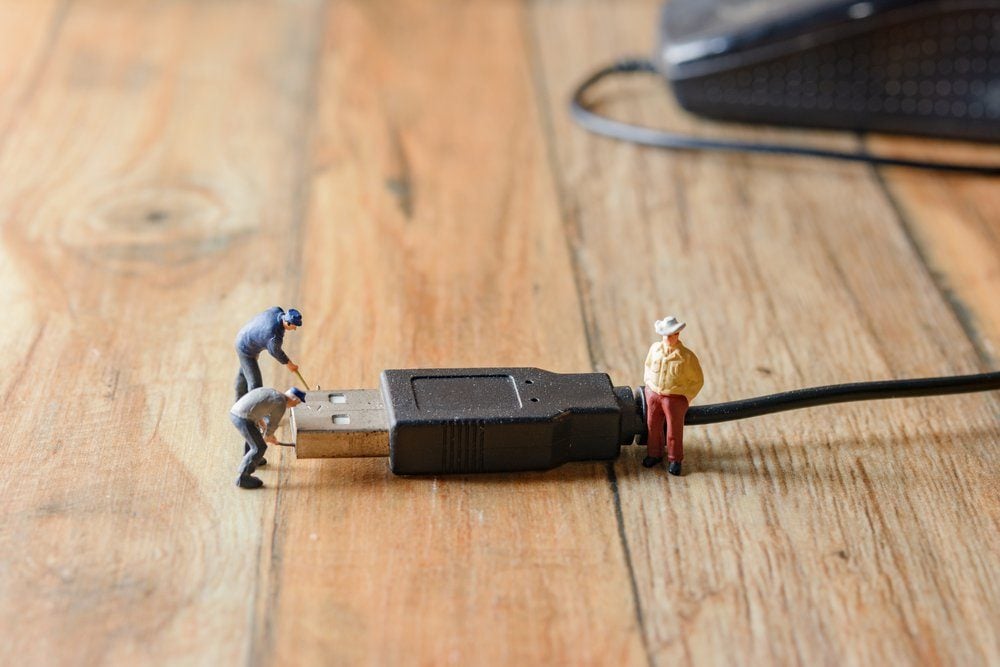
You never compress your data
Over time, the files on your laptop can become fragmented, meaning files that should be next to each other aren’t. If you have a Windows laptop, “defragging” your computer is a way of compressing and putting those files back together so that your computer doesn’t have to work so hard. “Basically, it organizes your data on your hard drive in a way that’s more efficient for the laptop,” says Eiland. “You can see the data being organized and the gaps being closed.” A defragmentation tool should already be built into your computer, so just type “defrag” in the search bar and it should pop up.
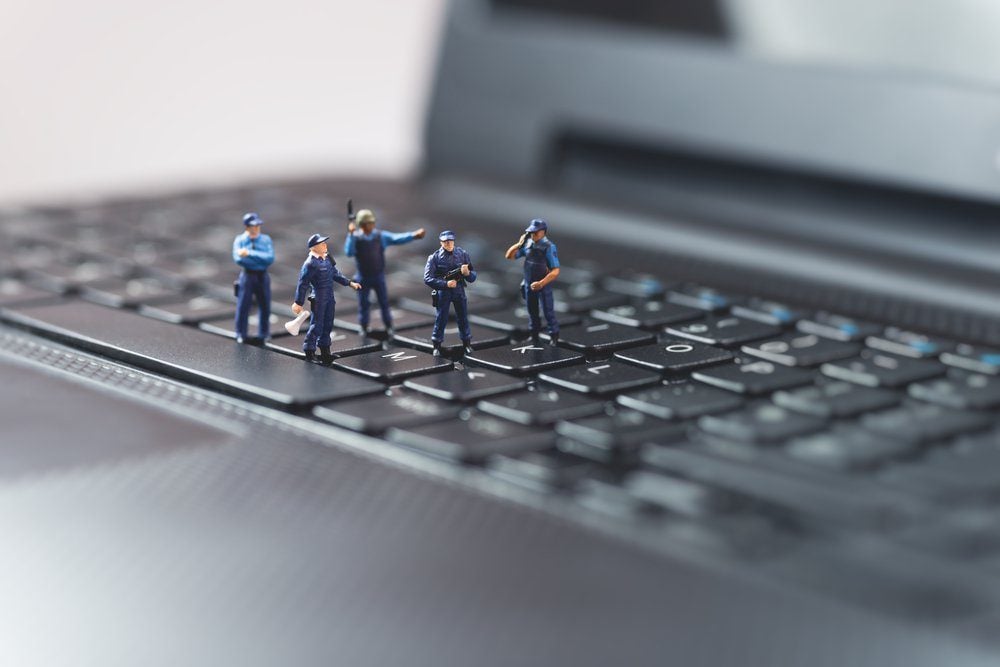
You never bothered to install antivirus
Hopefully this goes without saying, but antivirus software is essential for keeping bugs out of your system. “If you do get malware or a virus on your laptop, it can run hot at that point and can break your whole laptop,” says Eiland. Most antivirus software should install updates automatically, but make sure you pick a trusted brand the first time around.
Do you shop via laptop? Make sure you follow these eight tips for safe online shopping.
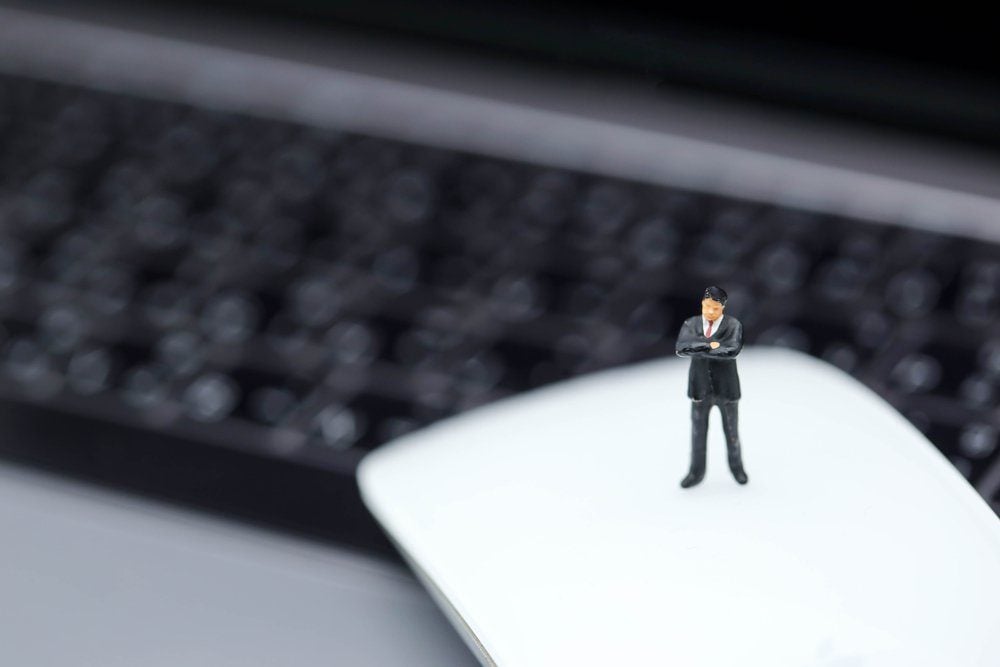
You always have a million tabs open
For the most part, your laptop can probably handle your habit of keeping a ton of tabs open at once. But if it isn’t well ventilated, making it work hard to keep all those pages going could cause extra stress. “The more your processor is having to work, the more heat it’s going to generate, and ultimately that does shorten the life of your laptop,” says Eiland.
Everyone will relate to these funny tweets about technology!

You haven’t tried resetting your computer
If your laptop is running painfully slowly, don’t lose hope and buy a new one just yet. This isn’t the same as a simple restart—resetting your Windows laptop reinstalls the operating system. “There’s no better way from a software perspective to get back to that fresh, crisp experience again,” says Schoeffler. On Windows 10, go to Settings > Update & Security > Recovery > Reset this PC. You’ll have two choices: Keep your files or remove everything, so unless you’re prepared to lose all your documents and photos, you’ll want to select the first option before letting the reset do its magic. Schoeffler recommends reinstalling every other year or so.
Here are three times you should never “accept cookies” on a site.
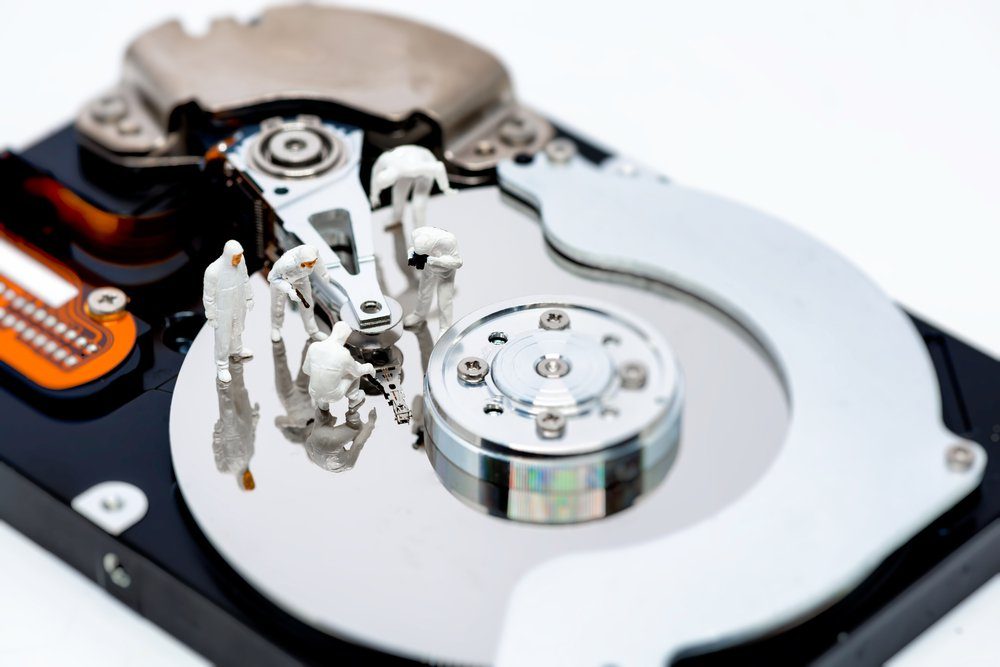
You aren’t delicate enough
You’ll want to be careful when carrying your laptop around, especially if you have an HDD. “If you have something spinning really fast and you’re jostling it around, you have a high chance of causing some kind of damage,” says Schoeffler. Damage to the hard drive is one of the most expensive repairs, he says, so be mindful when you’re carrying it—and it should go without saying that you should try not to drop your laptop too. SSDs aren’t as delicate, which is an added bonus to upgrading.
Find out how to save your laptop after a spill.
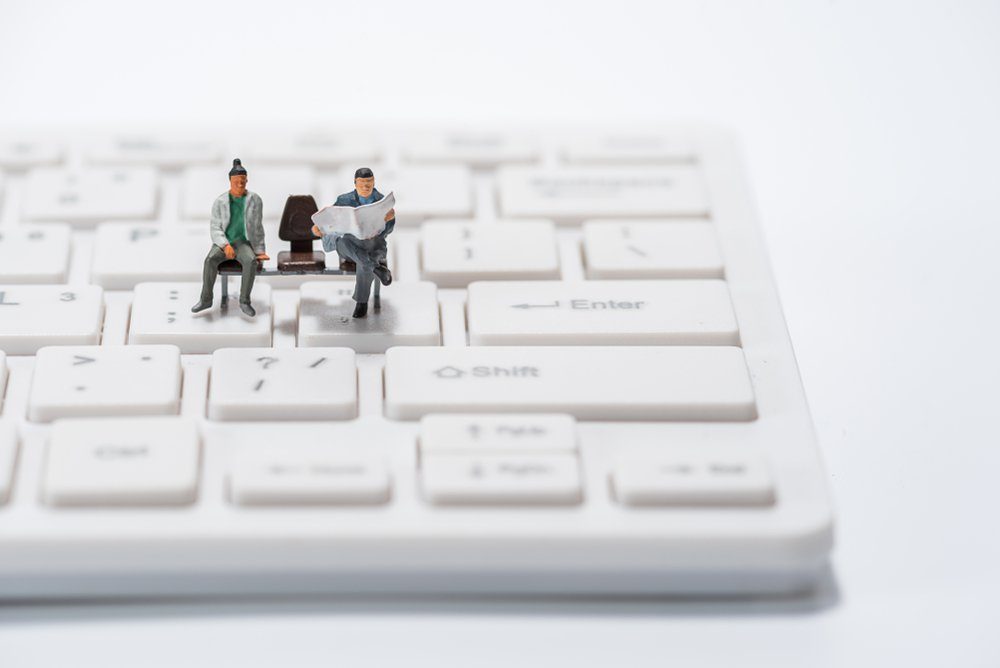
You don’t recognize suspicious links
Hopefully, your alarm bells go off when a pop-up claims you just won $1 million, but it can be harder to catch scammers who are posing as your friends. Hackers can spoof one of your friend’s Facebook profiles or email addresses, then send you a link. You might not question it at first, but that link could be downloading malware or gathering data from your computer. If something seems amiss—it’s just not how your friend talks or you’ve been re-friended by a Facebook friend—Schoeffler recommends reaching out to the person to confirm that it’s legit before you click.
Here’s why you need to stop commenting on those viral Facebook memes.